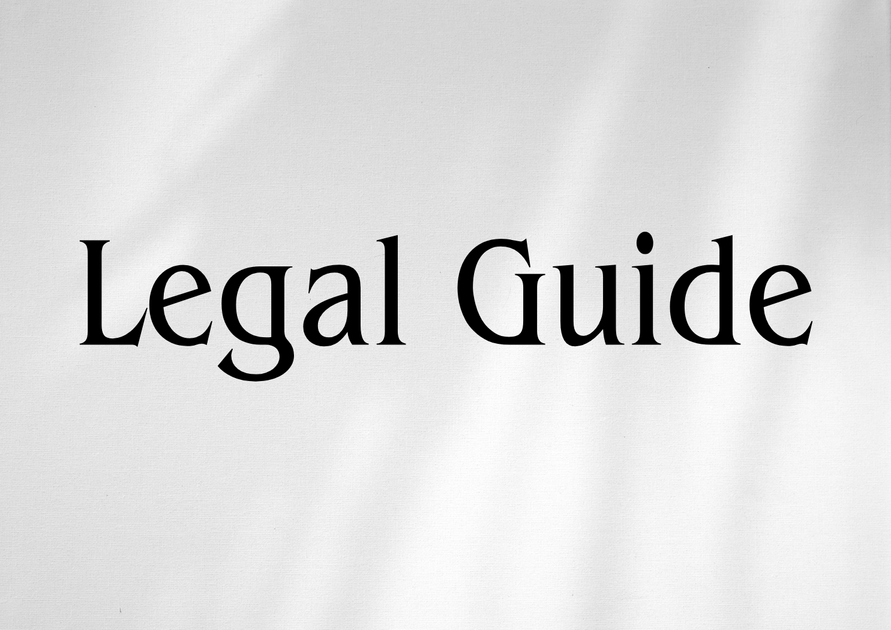Introduction
The rapid digitization of modern business environments across the UAE presents significant opportunities—and equally profound challenges. As artificial intelligence (AI) becomes embedded in core business functions, from talent acquisition to performance management, questions about ethics and legal compliance surface with increasing regularity. One of the most critical concerns is the risk of workplace discrimination associated with AI-driven tools and decision-making systems.
Internationally, entities such as the U.S. Equal Employment Opportunity Commission (EEOC) have developed advanced regulatory frameworks to mitigate algorithmic bias and ensure fairness in employment practices. In parallel, the UAE has demonstrated a strong commitment to upholding equal opportunity and combating discrimination, guided by Federal Decree-Law No. 34 of 2021 regarding Combating Discrimination and Hatred, and strengthened recently by additional Cabinet Resolutions and Ministry of Human Resources and Emiratisation (MoHRE) directives. These efforts align closely with global best practices, reflecting the UAE government’s vision for a robust, future-proof legal ecosystem that accommodates both technological progress and fundamental human rights.
This article, curated for executives, HR professionals, business owners, and legal practitioners in the UAE, delivers an in-depth analysis of the regulatory landscape governing AI and workplace discrimination. We examine the intersection of UAE law and EEOC guidelines, unpack key regulatory provisions, and provide actionable consultancy insights for ensuring compliance and minimizing legal exposure in 2025 and beyond.
Table of Contents
- Understanding AI, Workplace Discrimination, and Regulatory Contexts
- UAE Laws on Discrimination and Employment: Recent Updates
- Comparing EEOC Guidance with UAE Regulations
- Risks of Non-Compliance with AI and Discrimination Laws
- Practical Compliance Strategies for UAE Organisations
- Case Studies and Hypothetical Examples
- Conclusion and Forward-Looking Perspective
Understanding AI, Workplace Discrimination, and Regulatory Contexts
Defining AI in Employment Settings
Artificial Intelligence refers to systems programmed to mimic human cognition, enabling automated decision-making, pattern recognition, and predictive analytics. In an employment setting, AI tools are increasingly used to screen candidates, monitor employee performance, and recommend promotions. While AI promises speed, efficiency, and impartiality, improper design, unrepresentative datasets, or flawed implementation can perpetuate pre-existing biases—often in ways that are less visible than human judgement.
Workplace Discrimination: Types and Legal Dimensions
Workplace discrimination occurs when employees or candidates are treated unfavourably based on protected characteristics such as gender, age, race, religion, disability, or national origin. Both UAE and international law seek to eliminate such practices, and with AI’s growing influence, anti-discrimination obligations have expanded to cover not only human actions but also algorithmic decisions.
UAE Laws on Discrimination and Employment: Recent Updates
Key Statutes and Cabinet Resolutions
The UAE has robust anti-discrimination laws. Federal Decree-Law No. 34 of 2021 Regarding Combating Discrimination and Hatred explicitly prohibits discrimination based on religion, caste, doctrine, race, colour, or ethnic origin. Complementing this, Federal Decree-Law No. 33 of 2021 Regarding the Regulation of Labour Relations (the ‘Labour Law’) was revised as recently as 2022 to reinforce equal treatment in employment.
Additions and clarifications from Cabinet Resolution No. 1 of 2022 and explanatory circulars from the Ministry of Human Resources and Emiratisation (MoHRE) in 2023-2024 have refined obligations on employers in both onshore and free zone entities (except DIFC and ADGM, which have their employment regulations). These updates include express prohibitions against using AI-driven tools or other methods that directly or indirectly result in discriminatory practices.
| Legal Instrument | Key Provision | Effective Date | Application |
|---|---|---|---|
| Federal Decree-Law 34/2021 | Prohibits all forms of discrimination, including via digital and AI systems | Jan 2022 | All UAE jurisdiction |
| Federal Decree-Law 33/2021 | Mandates equal opportunity in employment, incorporates AI language | Feb 2022 | Onshore + free zones (excl. DIFC/ADGM) |
| Cabinet Resolution 1/2022 | Clarifies application to AI/automated decisions | Mar 2022 | Public & private sectors |
| MoHRE Guidance 2023-2024 | Details compliance requirements for AI in recruitment/performance | 2023/2024 | All employers |
Application in Practice: What UAE Businesses Need to Know
While human-centric discrimination remains the primary concern, the inclusion of AI-specific language in recent Cabinet Resolutions and MoHRE directives reflects a forward-looking regulatory approach. All organisations employing automated systems for hiring, appraisal, or disciplinary processes are now legally required to demonstrate due diligence to prevent algorithmic bias. Notably, employers must:
- Regularly audit and test AI systems for bias or disparate impact;
- Maintain transparent records of automated decision-making processes;
- Provide affected individuals with accessible channels for redress or appeal;
- Adhere to clear privacy and data minimisation standards in compliance with UAE Federal Decree-Law No. 45 of 2021 on Personal Data Protection (PDPL);
- Train HR staff and executives on anti-bias protocols;
- Ensure that any vendor-supplied AI tools comply with UAE legal requirements.
Recent Updates for 2025: What Has Changed?
The past two years have seen intensified legislative attention on AI discrimination risks. Recent (2024-2025) MoHRE circulars now require periodic third-party audits of high-impact AI employment tools and formal impact assessments prior to their deployment. Penalties for non-compliance have been increased, and businesses face escalating administrative sanctions for repeat violations or wilful neglect.
| Aspect | Pre-2022 Regime | 2023-2025 Updates |
|---|---|---|
| Explicit AI Coverage | Not specified | Mandated for recruitment/assessment/HR |
| Audit Requirements | Best practice only | Legally required and reportable |
| Appeals/Redress Mechanism | Human review only | AI/automated action challenge channels mandated |
| Penalties | Fines or business warning | Higher fines, possible licence suspension for severe breaches |
Comparing EEOC Guidance with UAE Regulations
EEOC Guidance on AI and Employment Discrimination
The U.S. EEOC has extensive experience addressing bias risks in digital hiring and human resources. EEOC technical guidance (updated principally in 2022 and 2023) obliges employers to conduct regular bias assessments, make AI decision-making processes explainable, and offer accommodations for disabled candidates affected by automated systems. The EEOC enforces anti-discrimination protections under Title VII of the Civil Rights Act, the Americans with Disabilities Act (ADA), and related statutes with legal mechanisms that have shaped global regulatory thinking.
UAE versus EEOC: Key Similarities and Divergences
| Feature | EEOC (US) | UAE Law & Practice |
|---|---|---|
| Protected Characteristics | Comprehensive (race, sex, religion, disability, etc.) | Religion, ethnicity, gender, and others (incl. new digital axes) |
| Mandatory AI Audits | Strongly recommended, not always mandatory | Legally required for high-impact roles/tools |
| Right to Explanation | Explicit requirement for explainability | Implied via due process and appeal mechanisms |
| Sanctions | Penalties, court-enforced remedies | Fines, licence suspension, other administrative actions |
| Data Privacy | GDPR/US State Law overlay | PDPL + sectoral AI data codes |
Learning from International Best Practices
UAE lawmakers have actively referenced EEOC guidelines and global benchmarks in evolving anti-discrimination legislation. Businesses operating in both jurisdictions or in partnership with U.S.-based firms should ensure harmonized compliance across frameworks, especially regarding transparency, record-keeping, and enabling user/candidate appeals against automated decisions.
Visual suggestion: Insert a process flow diagram showing steps for AI bias detection, internal review, and appeal/escalation mechanisms for compliance clarity.
Risks of Non-Compliance with AI and Discrimination Laws
Legal and Financial Risks
Failure to adequately assess, monitor, and mitigate AI-driven discrimination exposes UAE employers to severe penalties. Under Federal Decree-Law No. 34 of 2021, breaches can trigger fines starting from AED 50,000, escalating with aggravating circumstances. Repeat and wilful violations risk business licence suspension, negative publicity, and downstream civil liability for damages to affected parties.
Under Federal Decree-Law No. 33 of 2021 and subsequent MoHRE circulars, negligent or non-compliant use of AI tools in HR processes can also lead to:
- Administrative sanctions from MoHRE, including blacklisting for government tenders;
- Employment litigation from individuals claiming algorithmic discrimination;
- Losing recruitment privileges or access to certain digital government services;
- Permanently impaired reputation affecting talent attraction;
- Potential exposure to international legal action where UAE businesses operate in multiple jurisdictions.
Key Non-Compliance Triggers
| Trigger | Potential Consequence |
|---|---|
| Lack of bias audit for new AI system | Fines, administrative warning, ordered remediation |
| No appeal mechanism for AI-based employment decision | Increased likelihood of litigation, regulatory censure |
| Failure to update policies to reflect AI use | Liability for vicarious acts, insurance voidance |
| Unsupervised use of vendor solutions | Joint liability, increased damages risk |
Practical Compliance Strategies for UAE Organisations
Legal Risk Management: Building an AI Compliance Framework
Robust AI governance is now a regulatory and business imperative. The following steps, rooted in MoHRE and Cabinet guidance for 2025, reflect best practice for HR and business leadership:
- Conduct baseline AI bias testing: Ensure datasets used in recruitment or appraisal are diverse, representative, and regularly checked for disparate impact on protected groups.
- Formalize documentation: Maintain a full register of automated decision protocols, parameter-weightings, and periodic review outcomes.
- Implement appeal/redress pathways: Allow candidates and employees to request human review of automated outcomes and provide clarity regarding such processes in employment manuals and digital portals.
- Vendor evaluation: Mandate contractual undertakings from AI tool vendors that their solutions comply with UAE legal requirements. Consider indemnities for latent algorithmic defects.
- Training and awareness: Roll out targeted training on AI discrimination risks for HR, IT, compliance, and executive teams to foster a compliance-first culture.
- Engage external auditors: For high-impact recruitment or performance systems, commission third-party reviews and audits to assure ongoing compliance.
- Integrate privacy compliance: Align all AI data processing activities with the UAE PDPL and MoHRE’s privacy-related directives.
Visual suggestion: Insert a compliance checklist visual or infographic summarizing the practical steps outlined above for teams to follow easily.
Checklist: AI Workplace Discrimination Compliance
| Step | Status (Yes/No) | Notes/Remarks |
|---|---|---|
| Baseline bias testing conducted | ||
| AI usage policy updated (2025 Law) | ||
| Appeal/redress process accessible | ||
| Vendor compliance documentation obtained | ||
| Staff training completed | ||
| Third-party audit commissioned (if applicable) | ||
| Data minimisation practices aligned with PDPL |
Case Studies and Hypothetical Examples
Case Study 1: AI-Driven Recruitment in a UAE Technology Firm
Background: A leading UAE-based tech company adopts an AI-powered application tracking system (ATS) to streamline hiring. Unbeknownst to HR, the underlying training data—selected from prior years’ records—contains gender imbalance and nationality bias.
Outcome: Within months, female and non-GCC applicants observe disproportionately low short-listing rates. An internal MoHRE inspection, precipitated by complaints, uncovers that the AI systematically deprioritized candidates from certain backgrounds.
Legal Consequence: The company faces a substantial administrative fine, is ordered to suspend AI-driven recruitment until remedial action is taken, and must conduct a full audit under MoHRE supervision. The reputational impact affects employer branding.
Case Study 2: Vendor-Supplied Assessment Tool in a Hospitality Chain
Scenario: A hospitality group deploys a vendor-supplied AI tool to evaluate employee performance. The vendor, based overseas, fails to align the tool’s metrics with UAE protected characteristics. Employees from specific national origin clusters are adversely rated, prompting allegations of indirect bias.
Remediation: Following regulatory investigation, the hospitality group is held jointly liable under UAE law for failing to assure vendor compliance. The business swiftly implements corrective training, introduces a transparent appeal process, and renegotiates vendor contracts to incorporate UAE compliance covenants.
Hypothetical Example: Automated Promotions Review
Situation: A multinational in the UAE implements an AI module to and promote top-performing staff. The algorithm’s design favours employees with longer tenures—correlating unintentionally with age—leading to a de facto adverse impact on younger, high-performing employees.
Consultancy Insight: Employers must regularly benchmark AI outcomes against demographic diversity and equal opportunity objectives; where unintended impact is found, algorithm parameters and data inputs must be re-calibrated to align with legal mandates.
Conclusion and Forward-Looking Perspective
The adoption of AI in UAE workplaces is inexorably intertwined with evolving legal compliance standards. The UAE’s dynamic legislative agenda, anchored in Federal Decree-Law No. 34 of 2021, Federal Decree-Law No. 33 of 2021, and their enabling regulations, signals clear intent: all discrimination, whether human or algorithmic, will be robustly sanctioned. Drawing on EEOC guidelines, UAE law now mandates unprecedented diligence, transparency, and human oversight around AI use in employment.
For UAE employers, this legal complexity is not simply a compliance challenge but a strategic imperative. With 2025 ushering in tighter requirements and increased enforcement, proactive organisations will:
- Embed legal review and bias audits at every stage of AI tool adoption;
- Continuously update workplace policies to capture best practice and regulatory expectations;
- Leverage external expertise for impact assessments and remediation strategies;
- Enhance transparency and empower employees to appeal automated decisions;
- Champion a culture of fairness, diversity, and inclusion—bolstering both brand and risk management.
In conclusion, the challenge of navigating AI and workplace discrimination is best met with an integrated, legally-grounded compliance system that draws from both UAE and international best practices. Businesses that adopt such an approach will safeguard their people, enhance their reputation, and position themselves for sustainable success as the UAE forges ahead into the future of work.




